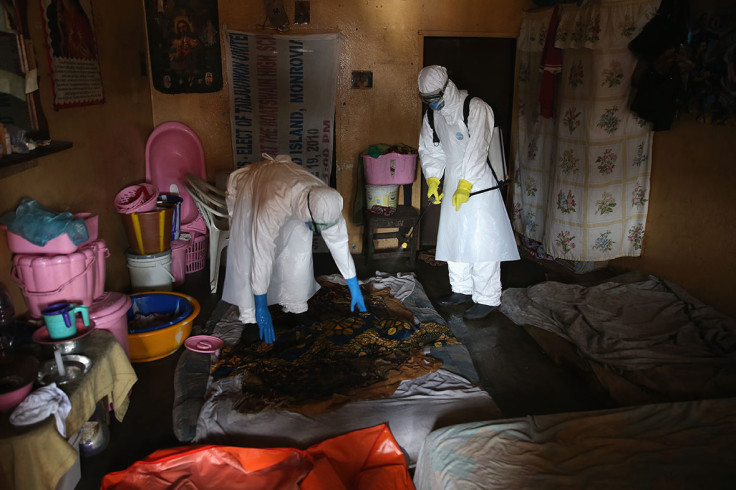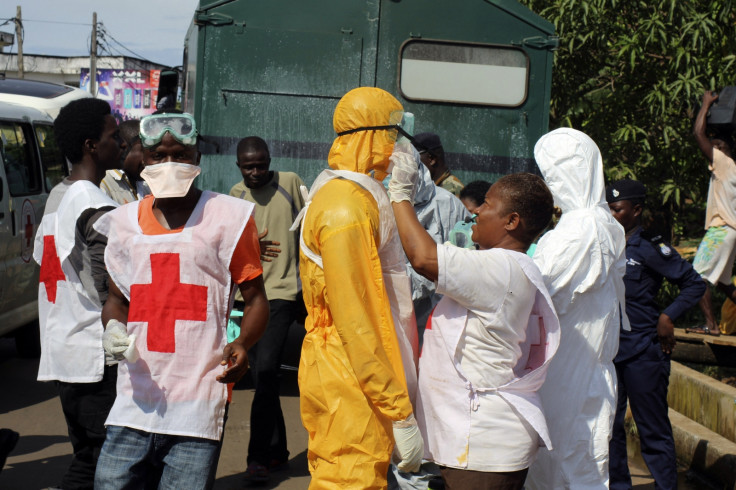Ebola Outbreak: Could Spread of Virus be 'Silently Immunising' People Naturally?

The death toll from the current Ebola outbreak has been unprecedented, with over 4,500 fatalities and counting. Yet as more reports of the virus emerge, it may be silently immunising large numbers of people – protecting them from future infection, scientists suggest.
If such immunity is confirmed, it would have significant ramifications on projections of how widespread the disease will be.
Dr Steve Bellan and Dr Lauren Ancel Meyers, of the University of Texas at Austin, have called for more health authorities to determine how commonplace it is for people to be infected by Ebola without ever developing symptoms or spreading the disease.
It could be that they are then protected from future infection, they wrote in a letter in the Lancet.
"Ultimately, knowing whether a large segment of the population in the afflicted regions are immune to Ebola could save lives," Bellan explained.
"If we can reliably identify who they are, they could become people who help with disease-control tasks, and that would prevent exposing others who aren't immune. We might not have to wait until we have a vaccine to use immune individuals to reduce the spread of disease."
The letter highlights that researchers have found evidence of asymptomatic Ebola infections in the aftermath of prior outbreaks of the virus. However, it is not yet known whether such infection provides immunity.
Addressing this question and identifying naturally immunised individuals could prove to be critical in public health efforts to contain the disease – as well as estimating the spread of the pathogen.
"Asymptomatic cases are likely to have a little bit of virus for a little bit of time then fight it off," Bellan told the Washington Post.

"Understanding the prevalence and immunological effects of these silent Ebola infections is critical to making reliable epidemic projections and improving control efforts," Meyers said in the letter.
"We believe that we can and should investigate this phenomenon as soon as possible."
The discovery of immune individuals would also have a knock-on effect in the work being done to curb the spread of Ebola. Those with natural immunity could be recruited to help with disease control and work on the frontlines of the crisis – without risking their own lives.
"Recruitment of such individuals might be preferable to enlistment of survivors of symptomatic Ebola disease because survivors might experience psychological trauma or stigmatisation and be fewer in number - in view of the asymptomatic proportions suggested in previous studies and the low survival rate of symptomatic cases," Bellan added.
This week, it was reported that the virus has killed hundreds of doctors, nurses and other healthcare workers. Amber Joy Vinson is the second nurse test positive for the virus in the United States, while the majority of worker deaths have occurred in west Africa.
According to the latest figures from the World Health Organization (WHO), there have been nearly 9,000 cases of Ebola in seven countries: Guinea, Liberia, Nigeria, Senegal, Sierra Leone, Spain and the United States. Some 427 healthcare workers have been infected, and 236 have died.
Experts predict that the crisis is going to get much worse without a large-scale prompt global response, as increasingly fragile health infrastructures collapse under the pressure of the disease.
Dr Bruce Aylward, assistant director-general of the WHO, estimated there could be up to 10,000 new cases of Ebola per week within two months. However, the number does not take into the account the effect of immune people.
"Ultimately, knowing whether a large segment of the population in the afflicted regions are immune to Ebola could save lives," Bellan concluded.
© Copyright IBTimes 2025. All rights reserved.





















